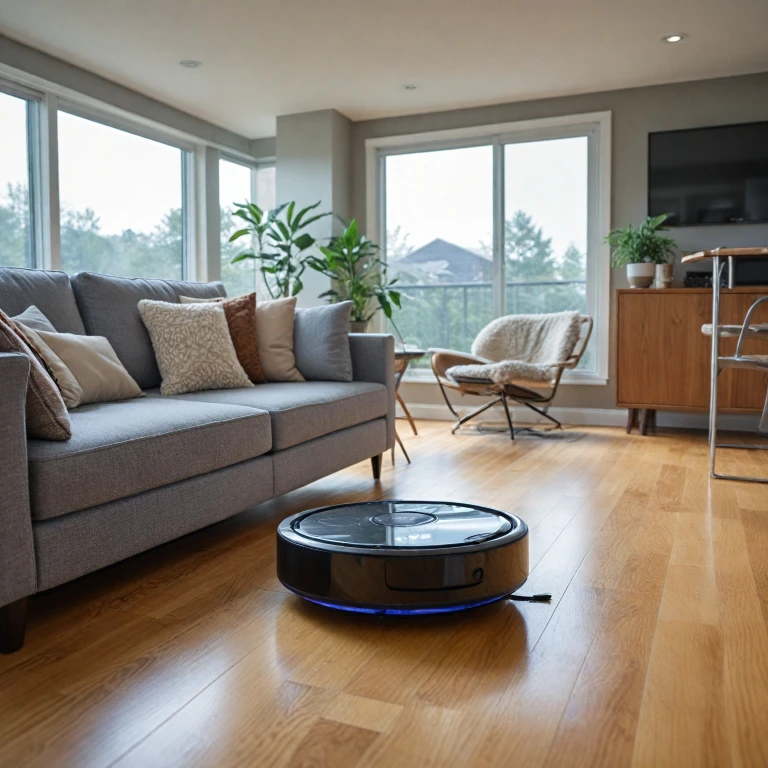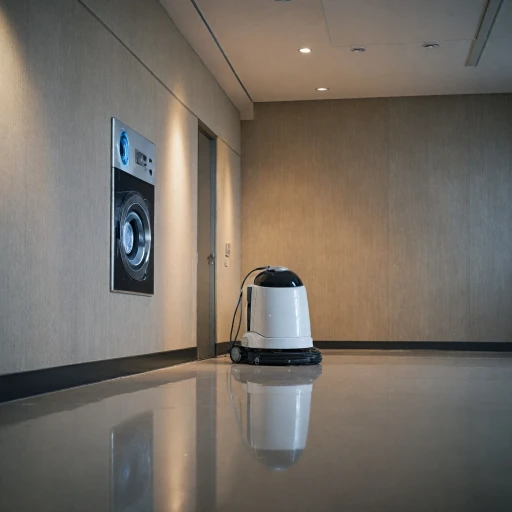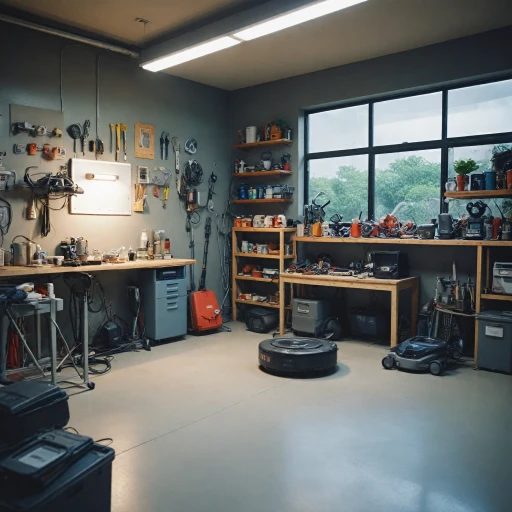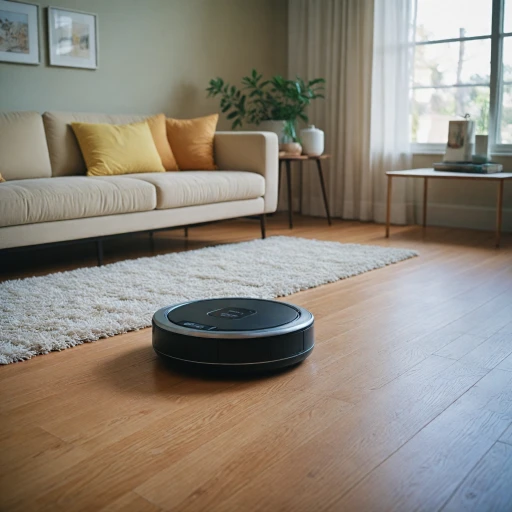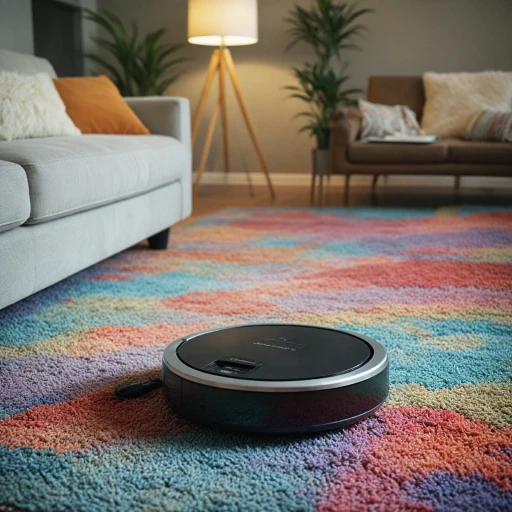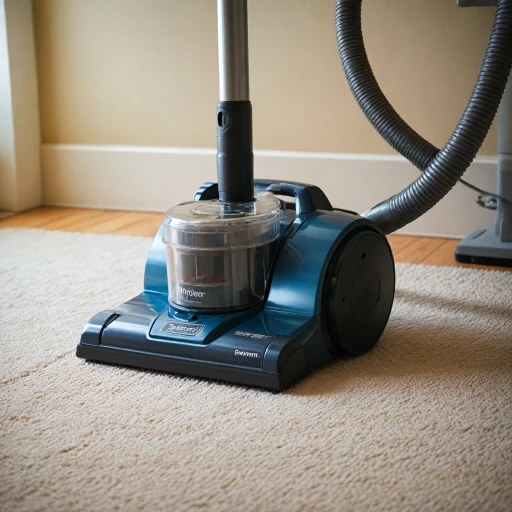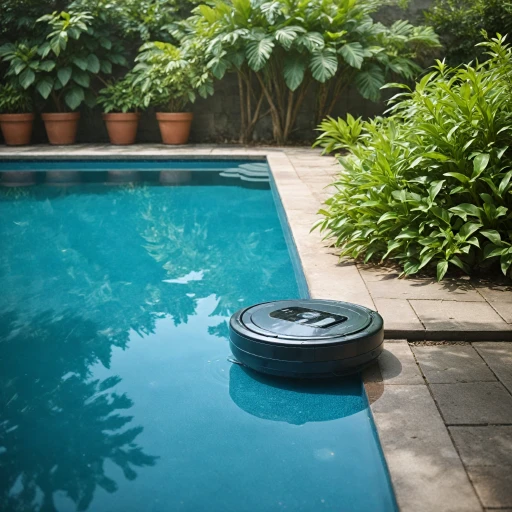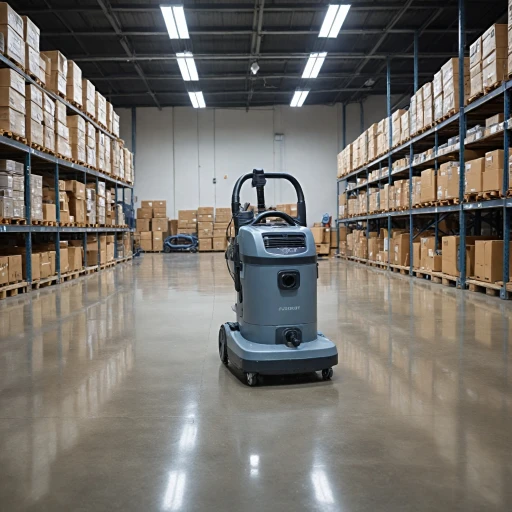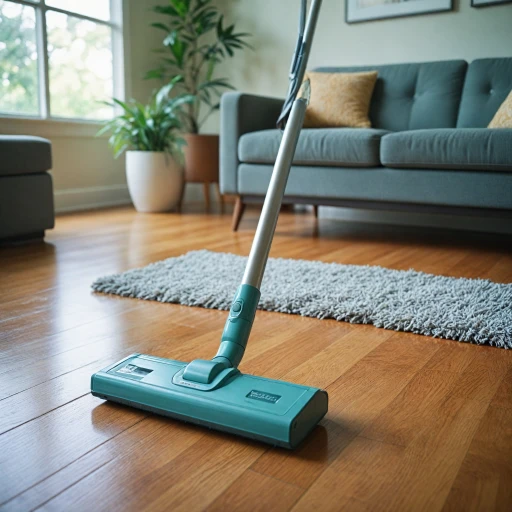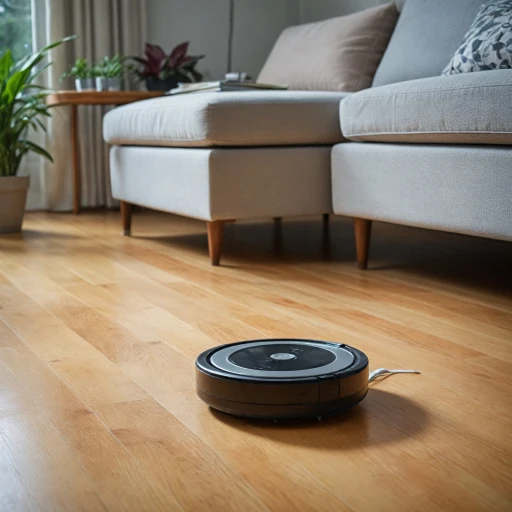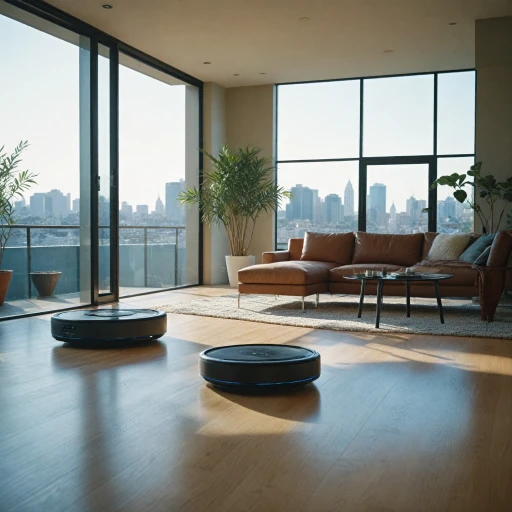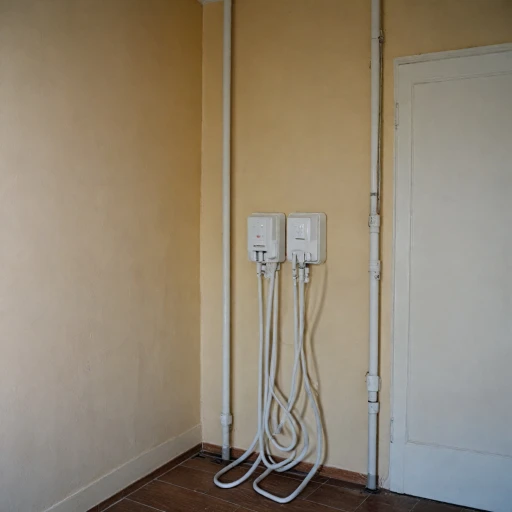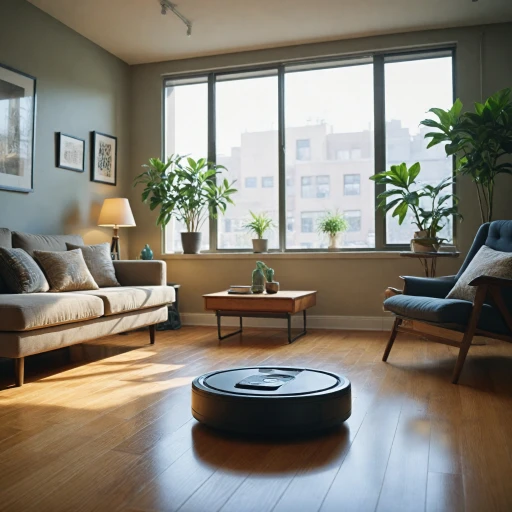
Understanding the core features of robot vacuums
Key Elements of Robot Vacuums
Robot vacuums have become indispensable tools for modern households, offering convenience and efficiency. To understand their true potential, it's essential to delve into the core features that set them apart from traditional vacuums and why they are steadily gaining traction.
Suction Power and Brush Design
The suction power is one of the most critical features to consider. It determines how much debris a vacuum can suck up and directly affects its cleaning efficiency. Models like the irobot roomba and roborock boast high suction capabilities, which help in efficiently clearing pet hair and other stubborn debris. Most robot vacuums also come with a main brush and side brushes designed to sweep dirt from hard floors and carpets into the path of suction.
Navigation and Obstacle Avoidance
Advanced navigation systems, often paired with obstacle avoidance technology, enable robot vacuums to clean efficiently without frequently bumping into objects. Technologies such as structured light and other sensors allow models like the roborock maxv ultra to map rooms and identify potential obstacles, adjusting their path accordingly.
Mop and Vacuum Combo
Many modern robot vacuums, such as the vacuum mop models, offer both vacuuming and mopping functions. Some are equipped with hot water mopping capability and come with disposable or washable mop pads to handle various cleaning tasks. This combo approach can be particularly useful for tackling fine dust and spills on hard surfaces.
Battery Life and Auto Empty Stations
Battery life is an important consideration, as it determines how long a robot vacuum can clean before needing a recharge. High-end models generally offer longer runtimes and efficient recharging features. Additionally, features like auto empty stations relieve users from the task of frequently emptying the dustbin, making the process even more seamless.
For more insights into vital components, you can read about understanding the essential parts of vacuums.
Comparing different brands and models
Evaluating Top-Rated Robot Vacuums: A Comparative Analysis
When venturing into the realm of robot vacuums, it’s vital to discern which brands and models align with your specific cleaning needs. The market offers a plethora of options, ranging from basic models designed for hard floors to advanced systems equipped with features like mopping and obstacle avoidance. One prominent player in the field is the iRobot Roomba, renowned for its powerful suction and reliable navigation. This brand has consistently received positive feedback for its longevity in terms of battery life and its intelligent mapping capabilities. In contrast, the Roborock series, including the highly regarded Roborock MaxV, exemplifies the integration of vacuum and mop functions, allowing for comprehensive cleaning with features like auto empty and app control for user convenience. For those prioritizing pet hair removal, models equipped with strong suction power and specialized brushes, such as a side brush or combo brush, have proven effective. Debris and hair accumulation can pose challenges, so selecting a vacuum with high suction power and a capable side brush can mitigate this issue. Additionally, for users who want a hands-off cleaning experience, features like structured light navigation in models such as the Roborock MaxV Ultra provide enhanced obstacle avoidance. Meanwhile, the newer iRobot Roomba iterations introduce advanced debris and pet hair collection efficiencies, further simplifying maintenance. Analyzing these different models allows you to target functionality that best suits your cleaning space, especially if you deal with challenging environments containing a mix of carpet, hard floors, and various obstacles. As you delve deeper into these comparisons, consider accessing further insights from Exploring the World of i Home Vacuum: A Comprehensive Guide to help make an informed decision.Smart technology and connectivity options
Exploring Smart Features and Connectivity
When deciding on the best robot vacuum for your home, smart technology and connectivity options play a significant role. These features enhance the user experience and improve cleaning efficiency. Today's robot vacuums are not just about suction power or mop capabilities. They increasingly incorporate advanced technology like structured light and obstacle avoidance systems. These technologies help robots navigate around obstacles with precision, making them ideal for homes with complex layouts or pet hair and debris scattered around. Models like the roborock maxv and irobot roomba are equipped with robust obstacle avoidance features. One important consideration is the app connectivity, which brings a level of convenience and control unmatched by traditional vacuums. Many robot vacuums offer an app that allows you to schedule cleaning, monitor performance, and even remotely control the robot. This is especially useful when you're on the move and want to return to a spotless home. Connectivity is further enhanced with voice command integration. Popular systems like Amazon Alexa and Google Assistant allow you to instruct your robot vacuum with simple voice commands, turning your "pro" robot into a seamless part of your everyday life. Some advanced models combine both vacuum and mop functions. With features such as a vacuum mop combo and auto empty services, like those found in the roborock max, they offer comprehensive cleaning solutions. The combination of hot water mopping and powerful suction allows for cleaning hard floors with ease. When comparing different models, it's essential to look at the navigation systems offered. Some vacuums use lidar or cameras to map your home, providing more efficient cleaning paths. This navigation feature can significantly enhance the device's battery life, helping it avoid unnecessary detours and maximizing cleaning time. For those concerned about maintenance, look for models equipped with features like auto empty stations and easy-to-clean brush systems. Regularly cleaning mop pads and side brushes keeps your device functioning at peak performance. In sum, choosing a robot vacuum with the right combination of smart technology and connectivity can make a big difference. Whether you pick a model from renowned brands like roborock or a lesser-known contender, these features can immensely enhance your cleaning routine. To delve deeper into the versatility of cordless wet and dry vacuums, explore our detailed guide.Maintenance and troubleshooting tips
Keeping Your Robot Vacuum Running Smoothly
Having a robot vacuum can significantly reduce the time spent on cleaning chores, but like any other appliance, it requires regular maintenance to ensure efficient operation. Here are some practical tips to help you maintain your robot vacuum:
- Regularly Clean Brushes: Over time, debris and hair can accumulate on the main brush and side brush of your robot vacuum. Removing these obstructions will help maintain optimal suction power and cleaning performance.
- Empty the Dust Bin: Even models with an auto-empty feature require the dust bin to be emptied occasionally. Ensuring the dust bin is cleared out will prevent reduced suction efficiency.
- Replace Mop Pads: If you own a vacuum mop or combo unit like the Roborock MaxV, check the mop pads regularly. Overused mop pads can result in less effective mopping and spread dirt instead of cleaning it.
- Check Battery Life: Battery longevity can affect how frequently your vacuum runs, so keep an eye on the battery's health. If it seems to discharge faster than usual, a replacement might be necessary.
- Clean the Sensors: Ensuring that the robot’s navigation and obstacle avoidance sensors are clean is critical. Use a dry cloth to gently wipe them and avoid water exposure to prevent damage.
- Inspect and Replace Filters: Check the filters periodically and replace them according to the manufacturer's recommendations. Clean filters aid in capturing dust and maintaining air quality.
Should you encounter issues despite routine maintenance, consider consulting the specific troubleshooting resources provided by the manufacturer. Some brands, like the iRobot Roomba, offer comprehensive support through online manuals and service centers, ensuring you have the necessary assistance when your vacuum faces challenges with patterned navigation or unexpected debris avoidance errors.
Budget considerations and cost-effectiveness
Evaluating the Investment
When considering the purchase of a robot vacuum, cost-effectiveness is a crucial factor. Assessing the balance between price and the features offered by these devices can influence decision-making. Despite the array of models available on the market, finding the one that meets your needs without breaking the bank requires some diligence.- Range of Prices: The cost of robot vacuums can range significantly, from budget-friendly models to high-end devices. Economical models often handle basic floor cleaning, while pricier units may offer advanced features like smart navigation and mopping capabilities. For instance, options like the Roborock Max highlight the market's premium tier.
- Feature Assessment: It's essential to gauge which features are indispensable for your household. Consideration of suction power, obstacle avoidance, and the capacity to handle pet hair or hard floors can guide expenditures. While the iRobot Roomba series is renowned for its efficiency and powerful suction, the Roborock MaxV Ultra may present additional functionalities such as dual mopping and vacuuming, providing a compelling combo solution.
- Long-Term Savings: While the initial cost might seem steep, robot vacuums can lead to savings over time by reducing the frequency of traditional vacuuming sessions. Their ability to manage daily debris, hair, and pet dander can enhance convenience and maintain cleanliness with minimal effort.
- Maintenance Costs: Besides the purchase price, ongoing costs such as replacement parts, mop pads, or side brushes should be factored into the budget. The longevity of features like the battery life and the auto-empty functionality, available in some advanced models, may positively impact the long-term value.

